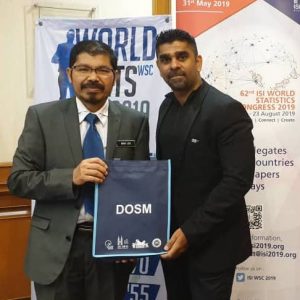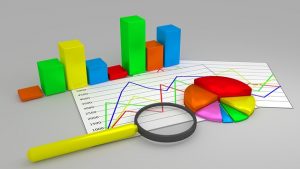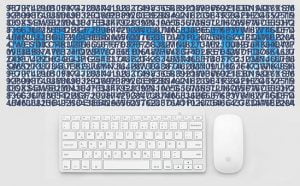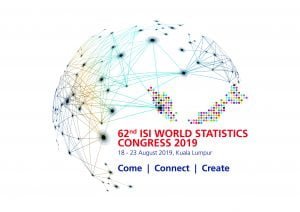
By Gunaprasath Bupalan (YouTube – Emjay Communications / www.newshubasia.com / www.ihaus.com.my / www.property360digest.com / www.malaysiaglobalbusinessforum.com
Remembering some 20 over years back, when I was still in secondary school, I used to cringe every time it was math period. Numbers were not my best friend. Furthermore, the chapter on statistics would leave me with migraines every time. Crunching numbers and drawing charts were not my cup of tea.
Then, after graduating from High-school, I decided to pursue further studies in Mass Communications as I figured it would have least involvement of mathematics, but to my very surprise there was statistic studies and quantitative methods (which got me cringing once again).
Years later, after graduation as I began my career, I also came to realize that numbers were a big factor in my daily life, may it be on a personal note, work involvement, business proposals and even the simple fact of timing my daily commute. It was then that I realized the importance of numbers and how crucial they could be in solving many issues in various areas.
Today, I use mathematics, statistics and creative formulas in everything I do, especially when it comes to running my business. So, when I got the call to have an interview with the number one man in Malaysia for statistics, I jumped to it. This was indeed a privilege that I could not let go.
YBhg. Dato’ Sri Dr. Mohd Uzir Mahidin was appointed as chief statistician for The Department of Statistics Malaysia back in February 2017. The Department of Statistics, Malaysia was established in 1949 under the Statistics Ordinance 1949 and was then known as Bureau of Statistics. The statistics produced then was limited to external trade and estate agriculture.
In 1965, the name of Bureau of Statistics was changed to the Department of Statistics, Malaysia and was operating under the provisions of Statistics Act 1965. The Department’s functions and role had expanded whereby the data/information collected included the economy and social areas.
The Department of Statistics Malaysia is a premier government agency under the Ministry of Economic Affairs entrusted with the responsibility to collect, interpret and disseminate latest and real-time statistics in the monitoring of national economic performance and social development.
The Department’s headquarters is located in the Federal Government Administrative Center, Putrajaya and has state offices in every state. Operational offices were set up in several states to further strengthen the data collection activities.

Mohd Uzir holds a PhD in Economics from the University of Sheffield in the United Kingdom and has served in the public service sector as a statistician for more than two decades to date.
Based on my research on this highly educated gentleman, I realized that he possesses extensive experience in the economics, social and demographics sectors. Recently, he was also appointed as the new Executive Committee (EXCO) of the International Association for Official Statistics (IAOS) 2019 -2021, leading international EXCO members such as John Pullinger from the United Kingdom, Misha Belkindas from USA, Peter Popoola from Africa, Dr. Mohd Uzir Mahidin from Asia, Hasnae Fdhil from Arab and Gemma Van Halderen from Oceania amongst other renowned names.
Having said that, as I was preparing for the interview, I was expecting a very strict mathematician so my questions were created very intelligently and in fact to a certain extend that even I could not make head or tale of it.
It was to my utmost surprise when I met Mohd Uzir, that this brainiac was no strict mathematician, instead he was a very down to earth gentleman who spoke clearly, yet firm and threw many words of wisdom my way (all statics related by the way). After the interview, I was enlightened with a better understanding of statistics, numbers, it’s significance as well as the importance of using statistics in our daily lives, business, work and governance. Best part of all he made it so easy to understand, so I had to share snippets of the interview here with you for your reading benefit and pleasure.
What is Statistics?

According to the dictionary, statistics can be defined as the practice or science of collecting and analyzing numerical data in large quantities, especially for the purpose of inferring proportions in a whole from those in a representative sample.
Yes, that sounded gibberish to me too.
In more laymen terms, what the dictionary is trying to say is that statistics is a branch of mathematics working with data collection, organization, analysis, interpretation and presentation. In applying statistics to a scientific, industrial, or social problem, it is conventional to begin with a statistical population or a statistical model to be studied.
Still gibberish-ish? Well, here’s how Mohd Uzir put it…
“When it comes to Statistics, you need to understand that it is a process, DATA once accumulated becomes STATISTICS and when these STATISTICS are studied, it becomes KNOWLEDGE, which eventually becomes WISDOM and WISDOM leads to SUCCESS”.
What is the purpose of the Department of Statistics Malaysia?

The tremendous demand for statistics as a consequence of the fast changes in economic structure within the country and globally and with the expansion of Information and Communication Technology (ICT) have created a statistical user community which demands for timely, real-time, relevant and of integrity information. This dynamic and complex demand from statistical user community poses challenges to the Department to ensure that the task of collecting, interpreting and communicating statistics is efficiently undertaken.
Vision of becoming a leading statistical organization by year 2020 provides a platform for the Department to enhance its statistical delivery to be at par with statistical organizations of developed countries. Thus, through Strategic Plan 2015-2020, the Department has identified various programmes to enhance its statistical management and information technology so that data collection activities, interpretation and data delivery to all users, be it the Government, private sector or international organizations are effectively implemented. The Department also instils innovative and creative culture among officers as an initiative to fulfil the various users’ needs in the dynamic and challenging global environment.
With the aspiration of Statistics for the wellbeing of the people, the Department continues its efforts to enhance data accessibility through https://www.dosm.gov.my by providing free downloading facilities too.
Statistics provided in the website is continuously updated based on latest information. Besides the statistical information compiled by the Department, the website also provides useful links to other relevant organizations as reference to users.
For more convenience, apparently DOSM is coming up with a new portal with more interactive facilities that is even more user-friendly very soon.
How is statistics from DOSM relevant for the majority public as well as business entities?

“The issue here is not very complex. For example, in Malaysia, it rains a lot. Knowing this fact, we have umbrellas produced and every household owns at least one umbrella. But what is the point in having the umbrellas but not using them when it rains?”
“The data is there, but it is not fully utilized by the public. We have the statistics on almost every area, people need to log on and use the data for their businesses, personal life, studies and so on”.
“Education on this is important, people need to be educated on how to use the data that is available. Once they can do that, everything becomes much simpler”.
The success for any industry is thinking about the well-being of others as your end goal. It should never be about your own benefit. Whatever you offer should benefit the end user. That is the basis of our business too. We provide statistics for the benefit of people and businesses out there, so that it would help them in their research, planning, movement and improvement. We hope that by using our data, they are able to benefit their users tenfold.
We also need to take note that businesses whether big or small need statistics to make their business decisions as they need to rely on real facts and figures in this competitive market, statistics would eliminate the necessity to use intuitions and assumptions, allowing them to make sound decisions that are meaningful and in the long run become more effective and competitive.
What are the some of the other benefits in using statistics when it comes to businesses?
As mentioned earlier, statistics are derived from real time data. With this data in hand, business owners or managers are able to gauge what their targeted audience actually needs and wants. This will allow them to filter what is to be produced and what is not to be, what needs to change and what needs to remain. In the long run, they gain satisfied clients and repeat orders.
Have you realized that in the older days of business, people ask business owners what are the assets they have to gauge how strong their portfolio actually is. But in today’s business arena, the first question that is asked is “How many followers on social media does your business have?” This goes to show that we are living in a digital world and everything is shifting to that paradigm. Why do people want to deal with businesses that have bigger social media following? This is because they get more exposure as well as they could measure their customer experience based on the analytics (statistics) that is collected.
Does DOSM work in tandem with the government to provide for the Rakyat needs?
DOSM is the master statistician for the Government. We basically act as the advisor to the different ministries on budget allocations. We plan out from the available resources, how much should be allocated to each ministry for their requirements based on statistics that we collect. This practice ensures that money isn’t spend unwisely and allocations are fair based on the actual need of each ministry.
How is statistics relevant in our daily routine?

We actually use statistics in our daily lives without even realizing it. On weekdays when we leave our homes to get to our respective offices, we leave at a specific time to avoid much of the rush hour traffic. This is based on research we have done calculating the best time to leave based on less traffic. This is a form of statistics that we have collected.
Another example would be when we are driving on a long highway. Without realizing the speed, we tend to go over the speed limit. It is when we see signs at the side of the road that says things like “SPEED LIMIT 90KMPH” or “ACCIDENT PRONE ROAD” or something of that nature, we automatically slow down. These signs have been placed there based on statistics that have been gathered based on the number of cars that tend to speed at these areas and the number of accidents that occur regularly.
When deciding on a retail purchase, we compare prices from different stores and of different brands before purchasing what we are looking for. This is also a form of statistical research. Without analyzing data from the other stores and brands, we may end up paying double the price for something that could have been purchased cheaper.
In today’s world, unlike yesteryears, when our children are offered jobs, we actually have the option to check the background of the company that is employing our child. We could see records of their annual turnaround and the company’s strength so that we can make a sound decision for them.
There are many instances that we use statistics in our daily lives and there are many ways we could use statistics but we do not know how, understanding the importance of statistics is the fundamental key to unlocking a whole new world of research for us and utilizing the different types of statistics that are made available for our knowledge is crucial.
Could you tell us a bit about the 62nd ISI WORLD STATISTICS CONGRESS 2019?

Malaysia is honored to host this prestigious biennial event of the ISI. This Congress will be jointly organized by the Department of Statistics, Malaysia, Bank Negara Malaysia and Malaysia Institute of Statistics, and supported by the Malaysia Convention and Exhibition Bureau (MyCEB), an agency under the Ministry of Tourism and Culture Malaysia.
The 62nd ISI WSC 2019 will bring together about 2,500 delegates, comprising statistical researchers, academia, industry practitioners, analysts and policymakers, from all over the world to share insights on development in statistical science and to advance application of statistics for discovery, innovation and decision making. About 1,300 papers in various statistical disciplines and applications will be presented and discussed over a period of five days. In addition to the Scientific Programme, satellite seminars, meetings and short courses will be organized as the pre-congress events. We believe that such a gathering of great minds will definitely surface great things.
Apart from the technical aspect of the Congress, we have also lined up a series of social programmes to allow you and accompanying persons to discover and experience the diversity of Malaysia. These diversities range from our beautiful landscapes to the exotic cuisines, from our multi-racial community to the diverse cultures and religions. “Malaysia, Truly Asia” – the slogan for tourism in Malaysia rightly indicates where all the colors, flavors, sounds and sights of Asia come together.
What could people take back from this congress?
Aside from knowledge from renowned speakers and trainers from around the world, attendees will be flooded with statistical studies and papers that would be very beneficial to their respective businesses and lives. As we have identified the importance of statistics to one’s life, here at this congress, it’s like a hub of statistical knowledge waiting to be shared.
In conclusion, what else would you like to share with people who are reading this article?

Well, I would like to say that there are so many advantages and almost no disadvantage in using statistics. Studying statistics is very important in anything we do. You don’t need to study statistics to become a statistician or an economist, instead use your knowledge to read and compare numbers in your respective field of work. Remember with statistics, data is collected in a standardized way and they are usually straightforward to analyze so anyone could use the data. Cracking this data and using it would put you one step ahead of others and make your work easier and more meaningful.
I would also urge people to attend the 62nd ISI WORLD STATISTICS CONGRESS that will be taking place next month. We see this congress beyond just a gathering of statisticians. Instead, we see it as a platform to showcase to the public ‘Why reading statistics is important’, because understanding this could change one’s life personally on a positive note and change the business world altogether.
To me, this interview wasn’t just knowledgable but it was so much fun listening to such an educated man speak about things that we do not necessarily realise is happening around us. Now I understand the importance of statistics and mathematics and am glad the interest in NUMBERS has finally caught on to me. Here’s to brighter days ahead. Thank you YBhg. Dato’ Sri Dr. Mohd Uzir Mahidin.
For more information, surf to www.isi2019.org
#isiwsc2019 #statistics #DOSM #numbers #mathematics #maths #business #education #YBMohdUzir #Gunaprasath #Property360Digest #emjaycomm #emjaycommunications #62ndISIWSC2019




